Health Sciences Faculty Honored as 2023 Researchers of the Year
Distinguished Researcher Award, Clinical Sciences
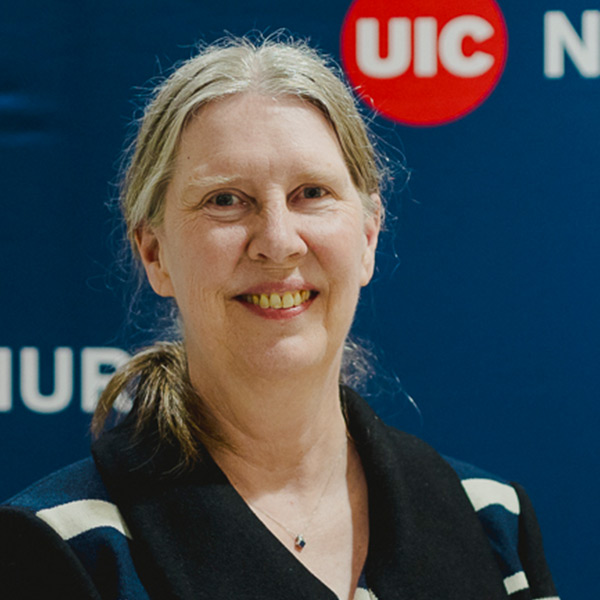
Ardith Doorenbos, PhD, RN, FAAN, College of Nursing
Dr. Doorenbos, is the Harriet H. Werley Endowed Chair for Nursing Research in the Department of Biobehavioral Nursing Science. Her research focus is pain management, particularly the use of complementary and integrative methods such as acupuncture, meditation and yoga, and she studies whether these practices can be done along with or instead of more traditional pharmacological treatments. Dr. Doorenbos is a member of the University of Illinois Cancer Center, has published more than 250 peer-reviewed papers on pain management and is working with five major grants from the National Institutes of Health.
Rising Star Award, Clinical Sciences
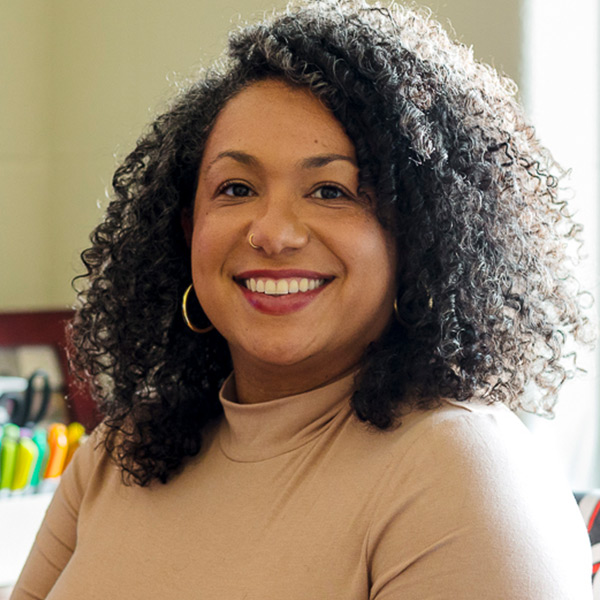
Natasha Crooks, College of Nursing
Natasha Crooks, PhD, RN, assistant professor in the Department of Human Development Nursing Science, has a research focus of protecting Black girls’ and women’s sexual and reproductive health. Dr. Crooks was recently awarded a $4 million grant from the National Institute on Minority Health and Health Disparities for a project to reduce sexually transmitted infections and HIV among Black girls by engaging their Black male caregivers in in helping the girls avoid STIs. She’s hoping to enroll about 300 14- to 18-year-old girls and their male caregivers — including dads, mentors, grandfathers or cousins — in the study.
Distinguished Researcher Award, Basic Life Sciences
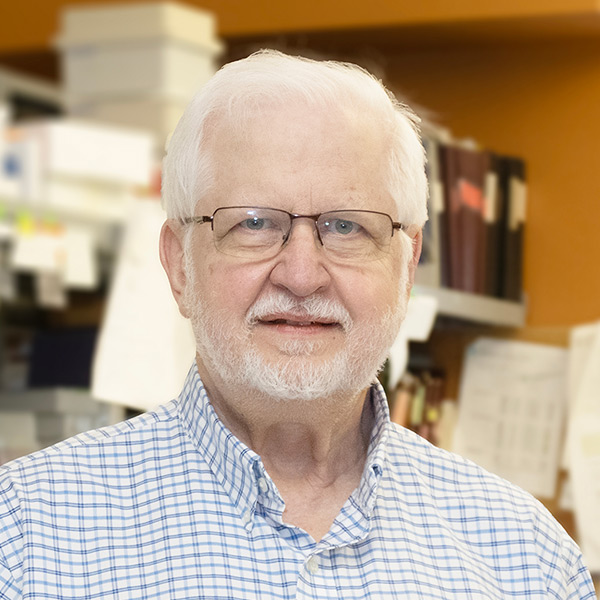
John Nitiss, College of Pharmacy
Dr. John Nitiss is a professor of pharmacology and assistant dean for research at the College of Pharmacy Rockford Campus. His research has focused on understanding the mechanisms of and improving efficacy of chemotherapy drugs. His lab discovered that drugs derived from bacteria targeting the activity of DNA topoisomerase could help kill cancer cells, but further experiments showed that mutations in the enzyme can also cause cancer. His goal is further elucidation of these mechanism with the potential of novel drug strategies leading to new cancer therapies.
Rising Star Award, Basic Life Sciences
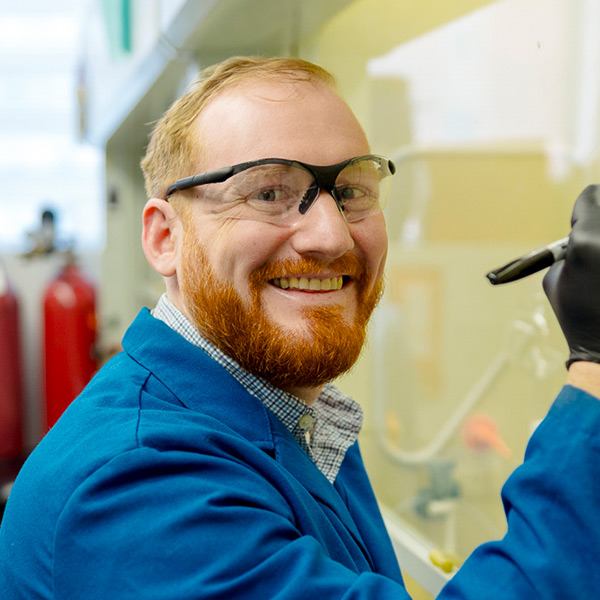
Andrew Riley, College of Pharmacy
Dr. Andrew Riley is assistant professor of pharmaceutical sciences, within which the Riley Lab investigates natural products to understand and treat diseases related to pain, substance abuse and other central nervous system disorders. For example, he Lab is examining the akuamma tree and the Aristotelia family of evergreen shrubs and trees, the seeds and leaves of which are used by some cultures to treat pain and infection. They identify compounds that produce these effects and seek to test and improve them in the laboratory.
Inventor of the Year
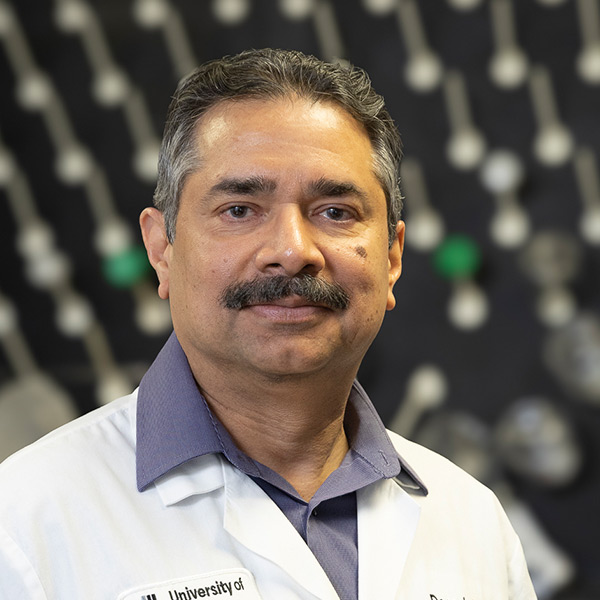
Deepak Shukla, College of Medicine
Deepak Shukla, PhD is the Marion H. Schenk Esq. Professor in Ophthalmology for Research of the Aging Eye and vice-chair for research in the department of ophthalmology and visual science. For his entire career, Dr. Shukla has studied herpes simplex viruses, which can cause encephalitis or blindness if they infect the eyes or brain. He also examines why the herpes virus is so tenacious, residing in a persons nerve cells for decades and flaring up whenever the immune system weakens. Through multiple NIH grants, his research builds on basic scientific insights to develop promising new therapies to slow the spread of herpesvirus infection. In recent years, his group has demonstrated how two small-molecule inhibitors affect the virus’ ability to reactivate and infect additional nerves, limiting the severity of the disease. Another project used activated charcoal particles to enhance the activity of an approved antiviral drug — acyclovir — against herpesvirus.
Postdoctoral Scholar of the Year Award
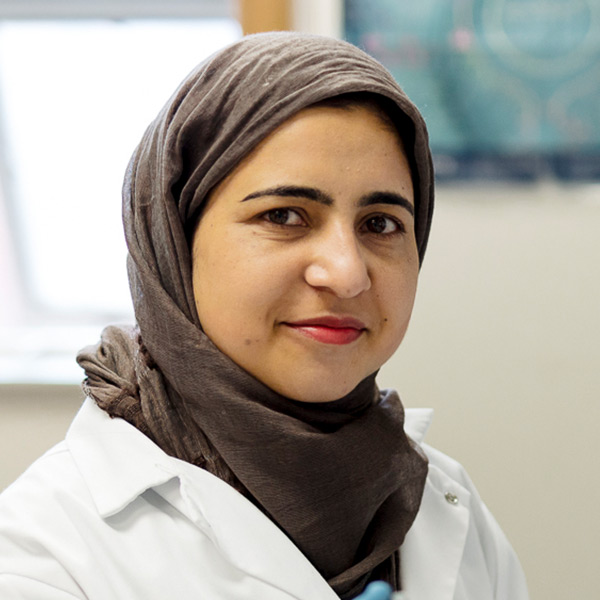
Zeenat Farooq, College of Medicine
Dr. Zeenat Farooq is researching the connection between HKDC1, a novel glucose-metabolism enzyme, and Alzheimer’s disease. Identifying this connection can help pinpoint lifestyle changes or medication regimes a person could adopt for early intervention in Alzheimer’s disease. She also leads a project to identify molecular markers involved in predisposing pregnant patients to gestational diabetes mellitus, a finding that could improve maternal and fetal outcomes.
Faculty Mentor of the Year Award

Todd Lee, College of Pharmacy
Dr. Todd Lee is professor and head of the department of pharmacy systems outcomes and policy, and is committed to helping the next generation of pharmacy students discover their most personally rewarding career path, and to fostering their growth as scientists. In his own research, Lee focuses on medication safety in large populations of people, identifying previously unknown or unidentified adverse effects of medications and examining the risks and the benefits of certain drugs.